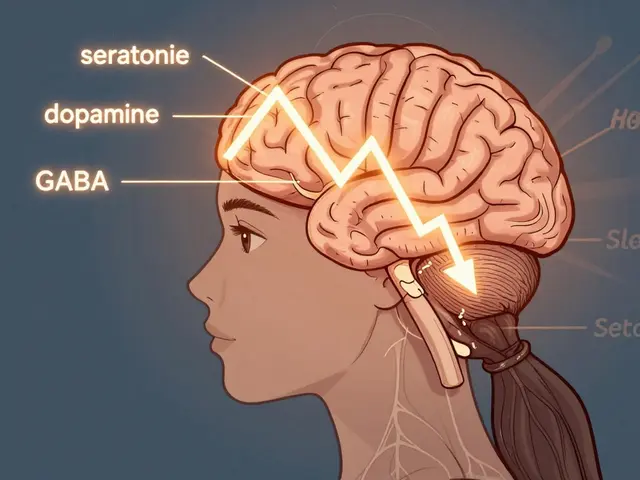Hepatic Encephalopathy: What to Watch For and What Works
Hepatic encephalopathy (HE) is a brain function change that happens when the liver can’t clear toxins. It can feel like mild confusion one day and severe sleepiness or coma the next. If someone with liver disease starts acting different—sleeping more, slurring words, or having strange behavior—take it seriously.
How HE Happens and common triggers
The core problem is toxin buildup, especially ammonia, reaching the brain. That usually happens when the liver is damaged (cirrhosis, acute liver failure) or when blood bypasses the liver through abnormal vessels. Simple things often trigger an episode: infections, constipation, gastrointestinal bleeding, too much diuretic or sedative, low sodium, or dehydration. Spotting and treating triggers fast makes a big difference.
What you might see: personality changes, forgetfulness, trouble concentrating, sleep-wake reversal (sleeping by day), tremor or flapping of the hands (asterixis), and in severe cases, reduced consciousness. Doctors grade HE from mild (grade 1) to coma (grade 4) to guide treatment.
Tests and early steps
Diagnosis is mostly clinical—doctors use history and exam. Blood tests help find triggers (infection, low sodium, kidney problems). Ammonia can be measured, but normal levels don’t rule HE out and high levels don’t always match severity. An EEG can show slow brain waves in HE, but it’s not required for every case.
Immediate steps at home or in clinic: treat airway and breathing if very drowsy, check blood sugar, stop sedating medicines, and get urgent medical review. If you suspect infection or GI bleed, go to the ER—those triggers need quick care.
Treatment focuses on lowering ammonia and fixing triggers. Lactulose is the first-line medicine: it changes gut bacteria and traps ammonia so it’s expelled. It often causes loose stools—that’s expected and part of the effect. Rifaximin, a non-absorbable antibiotic, is commonly added for recurrent HE. Other steps include correcting sodium and potassium, treating infections, and stopping medicines that worsen brain function. In stubborn cases, consider evaluation for liver transplant.
Prevention matters: keep bowels regular, avoid unnecessary sedatives and opiates, treat infections promptly, and follow the liver team’s advice on diet and meds. For people with repeated bouts, long-term lactulose and rifaximin can cut recurrences and improve quality of life.
As a caregiver, know the red flags: sudden confusion, new sleepiness, refusal to eat, or any drop in alertness. If those appear, seek urgent medical care. Talk with the treating team about a clear plan for emergency steps, medicines to avoid, and when transfer to hospital or transplant center is needed.
Want help with medicines like lactulose or rifaximin? Check with your clinician before buying online—make sure the product is legitimate and that dosing is right for the person’s current condition. With quick action and the right meds, many episodes of HE are reversible and manageable.




